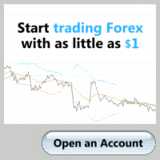When you learn forex trading through online courses, on-location classes, hands-on lessons and other sources, it should explain to you that Forex is not a risk-free business. Although many become successful traders and double their investments, all traders have experienced losses. Most traders are aware of possibilities that trades would go against them. As such, you should learn Forex trading the realistic way and understand that to minimize risks; you should take caution and use trading tools properly.
To minimize losses and trade profitably, you should learn Forex one-step at a time. However, you should consider several things before you choose a course and learn Forex trading. These include scams and risks associated with trading Forex.
A few years ago, Forex scams were extremely rampant. Although the Forex industry dramatically cleaned up plenty of fraudulent brokers, you still need to be cautious when signing up with a brokerage firm. Generally, reputable Forex brokers are associated with large financial institutions, such as insurance companies and banks. They should be registered with your respective government agencies. For instance, in the U.S., brokers should register with the Commodities Futures Trading Commission or become a member of the National Futures Association. After you learn Forex trading but you are still in doubt with a particular broker, then it is best to check with the Better Business Bureau and your local Consumer Protection Bureau.
Even if you deal with a broker of good reputation, there are still plenty of risks to Forex trading. Each trade is subject to volatile markets, unexpected rate changes and even political events that may affect worldwide currencies. When you learn Forex trading using a quality course or attending a reputable school, you will learn different trading risks involving the exchange rate, interest rate, credit and country risks. Since each type of risks present different losses, it is important that you understand how to limit these risks and avoid them as much as possible.
The key to limiting risks and avoiding scams is education. When you learn Forex trading, you develop a solid trading strategy, making you an expert in telling when it is a good time to enter or exit the market as well as determining what kinds of movements to expect. After one course, you should be able to read financial charts, study indicators and master the basics of technical analysis.
As a general rule, you should never place money in the Forex market that you cannot afford to lose. If you are still uncertain of your Forex skills and knowledge, the only way to limit trading risks is through proper education. If you really want to become successful at Forex, you need to have patience, effort and time to learn Forex trading the right way.
To minimize losses and trade profitably, you should learn Forex one-step at a time. However, you should consider several things before you choose a course and learn Forex trading. These include scams and risks associated with trading Forex.
A few years ago, Forex scams were extremely rampant. Although the Forex industry dramatically cleaned up plenty of fraudulent brokers, you still need to be cautious when signing up with a brokerage firm. Generally, reputable Forex brokers are associated with large financial institutions, such as insurance companies and banks. They should be registered with your respective government agencies. For instance, in the U.S., brokers should register with the Commodities Futures Trading Commission or become a member of the National Futures Association. After you learn Forex trading but you are still in doubt with a particular broker, then it is best to check with the Better Business Bureau and your local Consumer Protection Bureau.
Even if you deal with a broker of good reputation, there are still plenty of risks to Forex trading. Each trade is subject to volatile markets, unexpected rate changes and even political events that may affect worldwide currencies. When you learn Forex trading using a quality course or attending a reputable school, you will learn different trading risks involving the exchange rate, interest rate, credit and country risks. Since each type of risks present different losses, it is important that you understand how to limit these risks and avoid them as much as possible.
The key to limiting risks and avoiding scams is education. When you learn Forex trading, you develop a solid trading strategy, making you an expert in telling when it is a good time to enter or exit the market as well as determining what kinds of movements to expect. After one course, you should be able to read financial charts, study indicators and master the basics of technical analysis.
As a general rule, you should never place money in the Forex market that you cannot afford to lose. If you are still uncertain of your Forex skills and knowledge, the only way to limit trading risks is through proper education. If you really want to become successful at Forex, you need to have patience, effort and time to learn Forex trading the right way.


